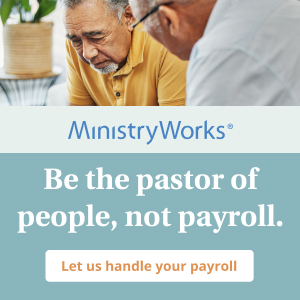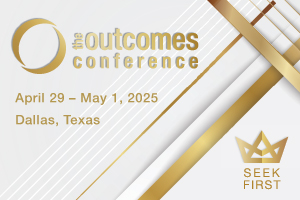
Perspective on Homogeneity By Dr. Mark L. Vincent

Refreshing Our Perspective on Homogeneity
Early in the pastoring part of my career, our congregation’s leaders studied the homogeneity principle—essentially, like attracts like. The experts said that folks with similar incomes, education, experience, ethnicity, and interests are naturally drawn to each other. The more homogeneity, the more they congeal. The faster you can grow your church.
It wasn’t only church planters following this principle. We’ve now lived through more than a generation of advertisers, business location services, urban planners, and political parties following the same direction. Polarization into societal tribes has been pursued scientifically and meticulously.
The congregation I served then was small and inner-urban —a mix of Laotian and Chilean refugees, Africans, and those with Appalachian and Swiss-Mennonite roots. I thought we ran counter to homogeneity, but I learned this was untrue. As diverse as we were, we all had the everyday experience of moving beyond our home communities, often through economic hardship or warfare. We all lived in the same city, shared the same faith, and were jointly involved in raising our families. We all also preferred multi-ethnicity, especially when dining! What we had in common and had developed in common is what bound us rather than those things that defined us differently. We contributed to this everyday life from our differences, which enriched us and created our communal weave.
My wife and I enjoyed wonderful poke bowls in New York City many years later. The restaurant where we dined served primarily Korean cuisine, but other Asian influences were present. There were at least five nationalities and at least three presenting genders in the small place. Country music blared from the radio, with the servers (Hispanic and Asian) singing along. The jumbled mix would be jarring when unfamiliar with such scrambled diversity. And yet, looking more deeply, we again begin to observe that everyone there had a shared experience. We were all in New York. Everybody eats. People come here if they want poke. Nothing strange here, sir. Please move along and get your napkins at the counter over there.
Whatever our enterprise, whatever our political views, whatever our faith or non-faith, whatever products we sell or service we render, we need to come to terms with those we find to be “other,” to look beneath, across, above, and around to see what is uniting and common, bringing our differences to build on the common. We must bring our smiles and embraces rather than our cold shoulders and harsh words. Our neighbors, co-workers, customers, and vendors need this from us. So do our children. And their children after them.
####
ᐧDr. Mark L. Vincent is the Founder of Design Group International and the Society for Process Consulting. He hosts the Third Turn Podcast and facilitates Maestro-level leaders.

The Maestro-level leaders’ experience facilitates a senior executive’s journey into building future value, a planful succession, and a curated legacy. Digesting the above paragraphs, it becomes clear we are not helping leaders permanently establish their accomplishments so that time does not erode them. Neither is it about enshrining programs so that future leaders are disempowered from adjusting an organization’s direction. Those efforts quickly echo the parable of the talents (Matthew 25) and the servant who digs the hole and buries the money so that it is lost.
Kingdom Values
What we are helping Maestro-level leaders do reflects kingdom values combined in the Great Commission (Matthew 28:19,20) and the Great Commandment (Mark 12:28ff). The work of future value, succession, and legacy is building into other people who will likely engage the mission differently, who may get more done and do it better than we ever could, perhaps because of the investment we made in them and the opportunities we created. We use assets (even if we lose them) to sow into a harvest we might not be here to see, rather than protecting assets by keeping them where we can continue policing their use—as if we were their owner (there is no ultimate guarantee of protection and preservation).
The Future
When we sow into the future, we step beyond fear of the stranger and the strange, which ultimately closes our hearts and minds. Our sowing comes from the choice, joyfully, to bring kindness, regard, empathy, and open hearts and minds. This openness helps us discern what God is doing, prepare ourselves and our successors to leap toward joining in and use assets to make it possible.
LEARN MORE

“The Spiritual Art of Business can transform the way you think about your faith in the context of your work. Based on his remarkable career, Barry’s book takes you into the unvarnished crucible of the workplace―with all its gritty challenges, victories, setbacks, and difficult people―and shows you how your career can become a sacred and purposeful journey instead of just a daily and exhausting grind. Spend a few hours with Barry; he will show you how God intends to repurpose you. The Spiritual Art of Business is a book that can transform the next few decades of your career.”
— Richard Stearns, president emeritus of World Vision US and author of Lead Like It Matters to God
ORDER YOUR COPY TODAY




